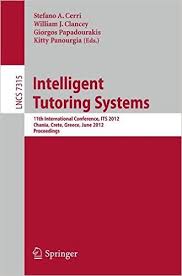Pedagogical Agent Design: The Impact of Agent Realism, Gender, Ethnicity, and Instructional Role
In the first of two experimental studies, 312 students were randomly assigned to one of 8 conditions, where agents differed by ethnicity (Black, White), gender (male, female), and image (realistic, cartoon), yet had identical messages and computer generated voice. In the second study, 229 students were randomly assigned to one of 12 conditions where agents represented different instructional roles (expert, motivator, and mentor), also differing by ethnicity (Black, White), and gender (male, female). Overall, it was found that students had greater transfer of learning when the agents had more realistic images and when agents in the “expert” role were represented non-traditionally (as Black versus White). Results also generally confirmed prior research where agents perceived as less intelligent lead to significantly improved self-efficacy. The presence of motivational messages, as employed through the motivator and mentor agent roles, led to enhanced learner self-regulation and self-efficacy. Results are discussed with respect to social cognitive theory.

